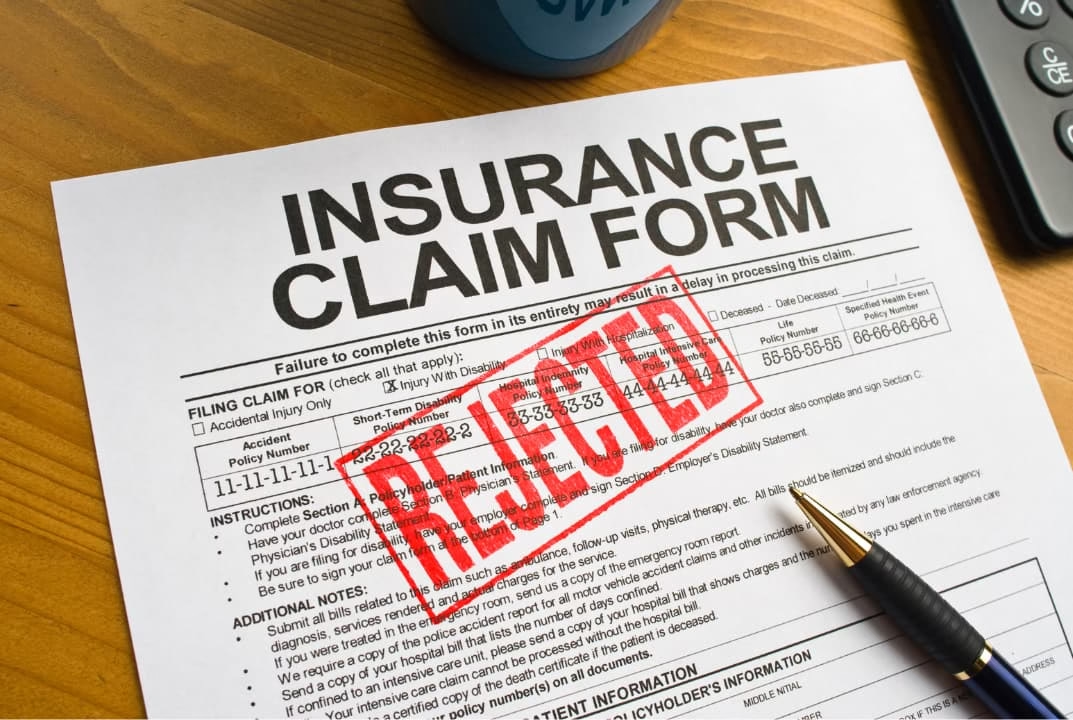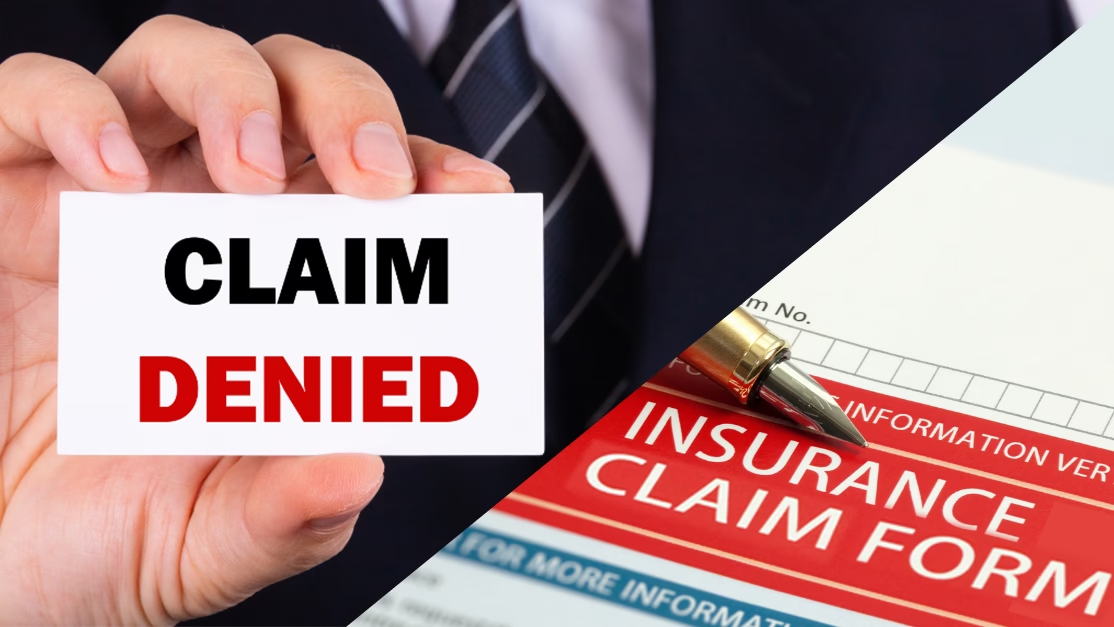Having an insurance claim denied can feel like a punch in the gut, especially when you’re relying on coverage during an already stressful situation. Whether it’s an auto accident, a health emergency, or property damage, a claim denial can leave you scrambling for answers. But take heart—denial doesn’t have to be the end of the road. With the right approach, you can challenge the decision and potentially reverse the outcome.
In this detailed guide, we’ll walk you through the steps to take if your insurance claim is denied, common reasons for denials, and how to avoid them in the future.
Why Insurance Claims Are Denied
Understanding why your claim was denied is the first step in addressing the issue. Common reasons include:
- Policy Exclusions
- Some events or damages may not be covered under your policy. For example, flood damage might not be included in standard home insurance.
- Lapsed Policy
- If your policy has expired or premiums haven’t been paid, your claim may be rejected.
- Insufficient Documentation
- Missing or incomplete paperwork can lead to a denial.
- Policy Limits Exceeded
- If the cost of your claim exceeds the coverage limits of your policy, it might be partially or fully denied.
- Late Filing
- Filing your claim outside the specified timeframe could result in a rejection.
- Disputed Liability
- In cases like auto insurance, the insurer may argue you were at fault, leading to a denial.
What to Do If Your Insurance Claim is Denied
- Stay Calm and Review the Denial Letter
When you receive a denial, take a deep breath and carefully read the explanation provided by the insurer. The denial letter will outline the reasons for rejection and reference the specific terms or clauses in your policy.Action Steps:
- Note the stated reasons for denial.
- Look for any request for additional documentation or clarification.
- Highlight areas where you believe the insurer may have misunderstood your claim.
- Understand Your Policy
Before taking further action, revisit your insurance policy to verify the terms and conditions. Familiarize yourself with the coverage details, exclusions, and filing deadlines.Pro Tip:
Pay special attention to:- Coverage limits.
- Policy exclusions.
- Clauses related to disputes and appeals.
- Contact Your Insurance Company
Reach out to your insurer’s customer service or claims department to discuss the denial. Ask for a detailed explanation if the letter doesn’t provide clarity.Questions to Ask:
- What specific part of my claim didn’t meet policy requirements?
- Is there additional information or documentation I can provide to support my case?
- How can I formally appeal the decision?
- Gather Additional Evidence
If your claim was denied due to insufficient evidence, now is the time to bolster your case. Collect any missing or overlooked documentation.Examples of Supporting Documents:
- For auto claims: police reports, witness statements, photos of the accident scene.
- For health claims: detailed medical records, doctor’s notes, or second opinions.
- For home claims: contractor estimates, photos of damaged property, receipts for repairs.
- File an Appeal
Most insurance companies allow you to appeal a denied claim. The appeal process typically involves submitting additional documentation or providing a written explanation to challenge the insurer’s decision.Steps to File an Appeal:
- Write a formal appeal letter addressing the denial reasons.
- Attach all supporting evidence, such as receipts, photos, and reports.
- Follow the insurer’s guidelines for appeals, including deadlines and submission methods.
- Seek Mediation or Arbitration
If your appeal is unsuccessful, consider mediation or arbitration. These processes involve a neutral third party who can help resolve disputes between you and the insurer.Key Points:
- Mediation is non-binding, while arbitration may result in a binding decision.
- Many insurance policies include arbitration clauses, so review your policy terms.
- Consult an Attorney
For complex or high-value claims, legal assistance might be necessary. An attorney experienced in insurance law can help you navigate the process, negotiate with the insurer, or even file a lawsuit if needed.When to Seek Legal Help:
- If you believe the insurer is acting in bad faith.
- If the denial involves significant financial loss or damages.
How to Avoid Claim Denials in the Future

- Understand Your Policy
Make sure you fully comprehend what your policy covers and excludes. If you’re unsure, ask your insurance agent for clarification. - Keep Policies Updated
Ensure your insurance coverage aligns with your current needs. For example, if you’ve renovated your home or added a new driver to your auto policy, update your insurer. - Pay Premiums on Time
Avoid lapses in coverage by setting up reminders or automatic payments for your premiums. - Document Everything
Keep meticulous records of any incidents that may lead to a claim. Photos, videos, receipts, and reports can make a significant difference. - File Claims Promptly
Don’t delay when filing a claim. Most policies have strict deadlines for submission. - Be Accurate and Honest
Provide truthful and complete information when applying for insurance or filing a claim. Misrepresentation can lead to claim denials or policy cancellations.
When to Consider Changing Insurers
If you frequently experience claim denials or dissatisfaction with your current insurer’s service, it may be time to shop around for a new provider. Look for insurers with a reputation for fair claims processing and customer service.
Factors to Consider:
- Customer reviews and ratings.
- Claims process and timelines.
- Financial stability of the insurer.
The Importance of Persistence
Dealing with a denied insurance claim can be frustrating, but persistence pays off. Insurers process thousands of claims, and errors or oversights can happen. By staying organized, providing compelling evidence, and understanding your rights, you can improve your chances of a favorable resolution.
Conclusion
A denied insurance claim doesn’t have to spell the end of your hopes for reimbursement. By carefully reviewing the denial, gathering additional evidence, and leveraging your rights to appeal, you can navigate the process and potentially overturn the decision.
Remember, your insurance policy is a contract, and as a policyholder, you have every right to seek the coverage you’ve been paying for. Take proactive steps to prevent future denials, and don’t hesitate to seek expert advice if needed. With patience and diligence, you can turn a denial into a success story.
Now Checkout:
How to File an Insurance Claim: A Step-by-Step Guide
International Health Insurance for Digital Nomads
Bundling Insurance Policies: How to Save Money on Coverage
How Your Credit Score Affects Your Insurance Rates
